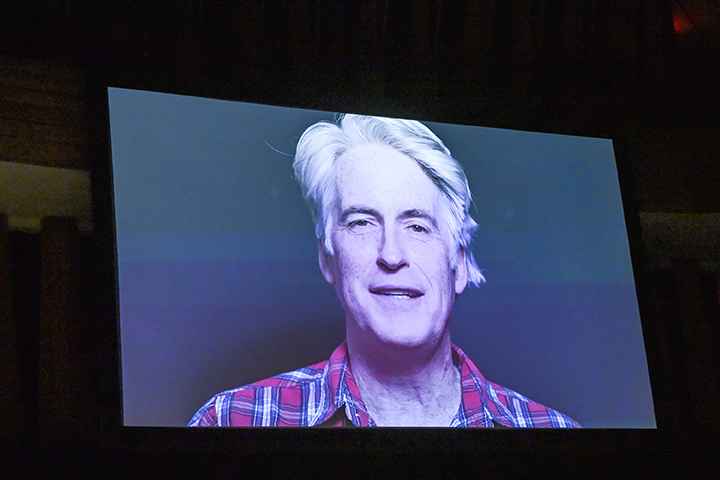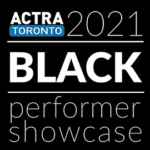By Joy Tanner
(8-minute read)
Tell us about your award-winning role in The Light Before the Sun and what inspired you about playing Freddy.
This project was a dream come true from the moment Tamara Podemski called and asked me to be a part of it right through to the first screening. Tamara, Jamie Thomas King and Rob Baker had come up with this beautiful story. Rob wrote the script. It explores addiction, identity and celebrity among many other things. They crafted these full, rich characters who had trapped themselves in this extreme situation where they were forced to confront essential questions on what it means to be alive and human. I love Freddy because he is so terribly flawed, toxic even, but has a deep and recognizable humanity and a need for a genuine connection that he is doomed to never achieve. When I read the script, it was an actor’s dream. A man fighting for survival in all the wrong ways, crying out to be seen, and also a formidable antagonist to Jamie’s character. Also, the collaborative spirit created by Michael Greyeyes on set, wow! It really was the ideal of what I hope to experience in this work. That rare feeling of striving collaboratively toward a common vision. My favourite thing to do!
The Outstanding Performance award nominees and winners are decided by a jury comprised of ACTRA Toronto members. How does it feel to be honoured by a jury of your peers?
It gives me a really lovely feeling. To think my peers saw something worthy in work that I am incredibly proud of. It is a wonderful, positive way of putting this beautiful film in front of audiences. It’s an incredible film that demands to be seen.
Acting is such a precarious and difficult thing to pursue. Filled with unemployment and rejection, the world constantly giving you reasons to doubt yourself and to wonder if you should even be doing this. Acting can be so gratifying, but it can also leave you feeling stranded and alone. So, to think of some of my fellow ACTRA members seeing my work and giving it a little nod, it’s like a little oasis. Sustenance. It helps me feel like a part of this community, because it’s easy to feel isolated, or sometimes even to isolate myself. Sometimes I feel like being an actor is like being a miniaturist. We focus on the tiniest details, we are consumed by them, which are mostly invisible to others, but that live so hugely in our minds. And we do this work in the most trying of circumstances, time constraints and the chaos of set. It can be frustrating to bring the wealth of our beings and experience to these moments only to feel them disappear in this oversaturation of content. So, having this award makes me think of all those moments in my working life and in the working lives of my peers that seem to vanish before they appear. And I’m grateful that someone sees them.
Also, to have this award sitting here in my home also reminds me of the wonderful experience of working on the film. Of acting with Jamie.
The ACTRA Awards in Toronto celebrate and applaud the outstanding performances, achievements, and artistic accomplishments and contributions of unionized performers. What does being a member of a professional performers’ union mean to you and why is it important to honour union performers?
I take so much for granted being an ACTRA member: work safety, standards of pay, benefits, etc. I can walk onto a set and focus on what I came here to do: be playful, courageous, creative, kind, combative, whatever it takes, and not have to worry (too much) about shouldering the burdens that ACTRA carries. When things are going well, I don’t notice it, but on those occasions when something is off and it’s time to call ACTRA? Phew! And, of course, the feeling of community that extends beyond those times when you’re working. The solidarity. And all the invisible heavy lifting. Also, I like how ACTRA helps me feel connected to our history as performers and to the future!

Do you have any advice for performers just getting started in the industry?
I wish! I realize how different the world is from when I started. When self-tapes were rare and culminated in putting a VHS tape in the mail, having to go to my agent’s office to pick up sides or read a script and, if the agency was closed, there was a donut shop that kept them behind the counter for you. Whenever a young person asks me for advice, I’m like “I have no idea!” You’re starting out in a very different world. But what still holds though, is the value of community, which we have to be more intentional about. Foster a community outside of work. Celebrate the achievements of the people around you even when you’re feeling really down, slighted and invisible. Especially then. And when I am working, I like to find a moment to breathe it in and enjoy it and to look around me at all the cool, interesting, vulnerable, talented and terrified people who are on the journey with me. I don’t know. I really don’t. I think this is a challenging and amazing time to be an artist. I am mostly looking for advice from young people, because they are inventing the next thing, and I’m not sure if there’s a net under them. I’m lucky because my sons are both filmmakers, so I get a peek into that world and, honestly, get more advice from them than I am able to offer to them.
What is the most significant role you have ever had and how has it impacted your life or career?
I feel I’ve had a few of those roles. They appear, usually unexpectedly, they’re exciting and they kind of set a soft trajectory of work for a short period of time. It’s funny, they seem to come in waves. I did a series in Los Angeles many years ago and it kind of cast a positive glamour on me as an actor for a while, but I’m not sure if it was good for me as a person. When I reflect on things I’ve done, I don’t really look back on the roles themselves, I think of the projects and the people involved in them. And there doesn’t seem to be a lot of connective tissue in the jobs I’ve had, so it’s difficult to think of them cumulatively as a career.
Also, the danger I get myself into (well, I used to, I’m better at it now) is that if I have what I consider a big job or an “opportunity,” I trap myself into thinking “this is it! This will lead to something else! I did it! I can relax now!” Which, for me, almost never happens. Or never obviously happens. And sometimes, when I fail, that failure will end up being a necessary moment in a whole collage of moments that leads to something I feel incredibly proud of.
Have you ever had a specific challenge with a role and how did you work to overcome it?
My biggest challenge is my brain. There are days, and there’s no way of predicting when these days will appear, but on the days when I arrive to set where my very own brain betrays me. There doesn’t seem to be any rhyme or reason to it, but my mind fills with terror and doubt, I become self-conscious and self-loathing; I think everyone hates me or is embarrassed for me. Basically, I’m paralyzed. And then I fumble my lines and fuck up and feel more embarrassed and then I am barely treading water. I’m sweating, I’m afraid to look people in the eye, I try to pretend nothing’s wrong. Sometimes I force myself to just act phonetically, just get the lines out and hope no one notices. And the only cure for me on those days is just for the day to end, and to hope that it doesn’t happen again the next day.
Can you share anything about any upcoming projects?
I’m going to do a play called Copperbelt by Natasha Mumba this winter and spring at the NAC and Soulpepper, which I’m very excited about. I have some writing out there in the world and we’ll see what happens with that. Being in rooms with lots of amazing theatre people. I also just shot a small scene in Maziyar Khatam’s new film, which is going to be amazing, and Ellie Moon’s very cool new film, Young Female Playwright, directed by Pony Nicole Herauf.



